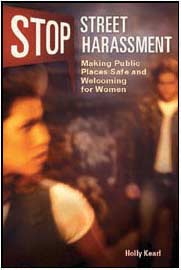Sunday, December 19, 2010
Monday, December 6, 2010
Women in Prison
Women in Prison
This is a fact sheet from Amnesty International that covers alot of what we have talked about. It is a bit dated, but much of it is still true.
This is a fact sheet from Amnesty International that covers alot of what we have talked about. It is a bit dated, but much of it is still true.
Healthcare in Women's Prisons
This is a fantastic article from Amnesty International
http://www.amnestyusa.org/amnesty-magazine/fall-2004/hidden-hell-women-in-prison/page.do?id=1105165
http://www.amnestyusa.org/amnesty-magazine/fall-2004/hidden-hell-women-in-prison/page.do?id=1105165
Sunday, November 7, 2010
http://womenandprison.org/motherhood/view/pregnancy_in_prison_a_personal_story/

Dear GWSS Prac. Students,
wow, Friday was really something else. I really felt like the work our group did was powerful and productive. What I gathered is the following:
Projects to pursue:
a video viewing system for women
Mothering along a continuum from being a young new mother to mothering children who are grown
the expansion of parenting classes and resources for parents and children (Gas fare, stationary, phone money)
The creation and production of a panel on mothering where all of the different voices related to childhood, childrearing, and mothering from prison can be heard and perhaps shared with the public.
This might even be in the form of a public reading-the inside students could write monologues and the outside students could share them? Or maybe we can film or record the voices of people who would make up the panel and make a CD or an MP3 that we could share.
Some Facts from:
http://www.drugwarfacts.org/cms/node/64

Dear GWSS Prac. Students,
wow, Friday was really something else. I really felt like the work our group did was powerful and productive. What I gathered is the following:
Projects to pursue:
a video viewing system for women
Mothering along a continuum from being a young new mother to mothering children who are grown
the expansion of parenting classes and resources for parents and children (Gas fare, stationary, phone money)
The creation and production of a panel on mothering where all of the different voices related to childhood, childrearing, and mothering from prison can be heard and perhaps shared with the public.
This might even be in the form of a public reading-the inside students could write monologues and the outside students could share them? Or maybe we can film or record the voices of people who would make up the panel and make a CD or an MP3 that we could share.
Some Facts from:
http://www.drugwarfacts.org/cms/node/64
- (2008 - parents in prison) "The scale of the effects of parental incarceration on children can be revealed simply by statistics showing the number of children with a parent in prison or jail. Among white children in 1980, only 0.4 of 1 percent had an incarcerated parent; by 2008 this figure had increased to 1.75 percent. Rates of parental incarceration are roughly double among Latino children, with 3.5 percent of children having a parent locked up by 2008. Among African American children, 1.2 million, or about 11 percent, had a parent incarcerated by 2008."
Source:Western , Bruce; Pettit, Becky, "Incarceration & social inequality," Dædalus (Cambridge, MA: American Academy of Arts and Sciences, Summer 2010), p. 16.
http://www.mitpressjournals.org/doi/pdf/10.1162/DAED_a_00019 - (2007 - prison population by race and sex) "Similar to men in the general prison population (93%), parents held in the nation's prisons at midyear 2007 were mostly male (92%) (not shown in table). More than 4 in 10 fathers were black, about 3 in 10 were white, and about 2 in 10 were Hispanic (appendix table 2). An estimated 1,559,200 children had a father in prison at midyear 2007; nearly half (46%) were children of black fathers.
"Almost half (48%) of all mothers held in the nation's prisons at midyear 2007 were white, 28% were black, and 17% were Hispanic. Of the estimated 147,400 children with a mother in prison, about 45% had a white mother. A smaller percentage of the children had a black (30%) or Hispanic (19%) mother."
Source:Glaze, Lauren E. and Maruschak, Laura M., "Parents in Prison and Their Minor Children" (Washington, DC: USDOJ, Bureau of Justice Statistics, Jan. 2009), NCJ222984, p. 2.
http://www.ojp.usdoj.gov/bjs/pub/pdf/pptmc.pdf
Thursday, October 28, 2010
Information about Welfare
http://www.apa.org/pi/women/programs/poverty/welfare-to-work.aspx


"People who have worked all their lives that are now asking for help. Traditionally, it was more in the urban areas that were coming in for assistance," said Genesee County DHS Director Sheryl Thompson. "Now we're seeing it all over the suburbs. People who really have to humble themselves because they didn't want to come for help."
According to Thompson, 109,000 people are on the state's food assistance program in Genesee County - nearly 1 in 4 residents. That number is up from 80,000 a year ago.
In an effort to reach out to people who need help but are afraid to ask for it, the state is trying to bust the myths about welfare.
Thompson says they are handing out more flyers and posters throughout the county to better educate people and break the myth that welfare is a drain on the system.
"That's helping people to keep jobs. That's helping people, grocery stores stay open," Thompson said. "In turn, they're going to spend money, and we're just trying to let people know it's meant to help."
Related Video


FLINT (WJRT) -- (09/01/10) -- A growing number of people need state assistance, and a new initiative in Genesee County is trying to bust myths about welfare.
According to the Department of Human Services, a record number of people need help with money, food, clothes and shelter. The DHS says many of those needing help are people they wouldn't traditionally see. "People who have worked all their lives that are now asking for help. Traditionally, it was more in the urban areas that were coming in for assistance," said Genesee County DHS Director Sheryl Thompson. "Now we're seeing it all over the suburbs. People who really have to humble themselves because they didn't want to come for help."
According to Thompson, 109,000 people are on the state's food assistance program in Genesee County - nearly 1 in 4 residents. That number is up from 80,000 a year ago.
In an effort to reach out to people who need help but are afraid to ask for it, the state is trying to bust the myths about welfare.
Thompson says they are handing out more flyers and posters throughout the county to better educate people and break the myth that welfare is a drain on the system.
"That's helping people to keep jobs. That's helping people, grocery stores stay open," Thompson said. "In turn, they're going to spend money, and we're just trying to let people know it's meant to help."
(Copyright ©2010 WJRT-TV/DT. All Rights Reserved.)
Tags:
assistance, welfare, state government, local, autumn perry 0 comments
Be the first to make a comment!
(Max. 500 Characters)
abc12.com and its parent and affiliated companies are not responsible for the content of comments posted above or for anything arising out of use of the above comments or other interaction among the users. While we may delete comments and block or take other action against users who we determine at our discretion have violated our rules, we cannot always do so. Please see our Terms of Use for additional policies applicable to these comments.
By commenting, you agree to our Terms of Use.
Loading .....
Sponsored Content
Advertisement
Advertisement
- Crash victims' identities released
- Some local bridges among the worst in the state
- Taser used on Abuelazam during altercation
- Friday marks final day of statewide sex offender sweep
- ABC12 NEWS UPDATE
- New Epic/MRA poll shows latest in gubernatorial race
- Lansing plant to produce new, smaller Cadillacs
- New Super Drunk law goes into effect Saturday night
- Early morning shooting precedes school closure
- Brewery offers a sweeter 'beer'
- MoneySaver: Halloween candy tips
- Survey: Economic outlook gloomy
- Forbes ranks Midland high on family list
- Young women aging out of foster care now have new home
MORE: MOST POPULAR | TALKIN' FOOTBALL
More on abc12.com
-
Most Popular
- Most Viewed StoriesMost Viewed VideoMost Viewed Photos
Advertisement
Advertisement
Saturday, October 23, 2010
Tuesday, October 19, 2010
Angela Davis Rocks
http://www.democracynow.org/2010/10/19/angela_davis_on_the_prison_abolishment
http://colorlines.com/archives/2010/10/mountains_that_take_wing_a_new_film_gives_a_snapshot_of_living_history.html

http://colorlines.com/archives/2010/10/mountains_that_take_wing_a_new_film_gives_a_snapshot_of_living_history.html
Thursday, October 14, 2010
More about Susan Faludi and
Susan Faludi
http://www.susanfaludi.com/
http://www.youtube.com/watch?v=9dVIHd3c_2M
 1:24:42 Added to queue
1:24:42 Added to queue
Slate's take on the article
http://www.slate.com/blogs/blogs/xxfactor/archive/tags/Latifa+Lyles/default.aspx

a bit about Latifa Lyles
http://www.now.org/officers/ll.html
http://www.susanfaludi.com/
http://www.youtube.com/watch?v=9dVIHd3c_2M
 1:24:42 Added to queue
1:24:42 Added to queueSlate's take on the article
http://www.slate.com/blogs/blogs/xxfactor/archive/tags/Latifa+Lyles/default.aspx

a bit about Latifa Lyles
http://www.now.org/officers/ll.html
Thursday, September 16, 2010
Thursday, September 9, 2010
Oxford English Dictionary Ethics and Morals and Radio Lab
The Oxford English Dictionary (1989) seems to show that, from the earliest times, the words had very similar meanings.
"Ethic" as a noun has the senses "The science of morals" and "A scheme of moral science", and these are treated as parts (a) and (b) of a single meaning. The earliest citation is from 1387.
"Ethics" (in the plural) divides into a number of meanings. The sense of "The science of morals; the department of study concerned with the principles of human duty" dates from 1602. The sense of "The moral principles or system of a particular leader or school of thought" dates from 1651.
"Morality" in the sense of "The doctrine or system concerned with conduct or duty; moral science" dates from 1449. In the sense of "Moral conduct; usually, good moral conduct; behaviour conformed to the moral law; moral virtue" it dates to 1609.
And finally, "morals" in the sense of "Moral habits or conduct; habits of life in regard to right and wrong conduct" dates to 1613. And the sense of "Moral science; moral doctrine; ethics" is said now to be rare, but dates at least as far back as 1651.
I personally find this to be unhelpful in sorting this out
Thus I turn to my favorite internet source that I can share with you
the Stanford Encyclopedia
http://plato.stanford.edu/entries/morality-definition/
upon further reading I guess it depends on which camp you like as to how you define morality and ethics. So I guess as the semester goes on we will figure out where we stand.
I am going to play a radiolab podcast on the way to the prison for us tomorrow. Should shake things up a bit more in terms of making things more interesting...
http://www.radiolab.org/blogs/radiolab-blog/2009/nov/16/killing-babies-saving-the-world/
http://www.radiolab.org/2007/aug/13/

"Ethic" as a noun has the senses "The science of morals" and "A scheme of moral science", and these are treated as parts (a) and (b) of a single meaning. The earliest citation is from 1387.
"Ethics" (in the plural) divides into a number of meanings. The sense of "The science of morals; the department of study concerned with the principles of human duty" dates from 1602. The sense of "The moral principles or system of a particular leader or school of thought" dates from 1651.
"Morality" in the sense of "The doctrine or system concerned with conduct or duty; moral science" dates from 1449. In the sense of "Moral conduct; usually, good moral conduct; behaviour conformed to the moral law; moral virtue" it dates to 1609.
And finally, "morals" in the sense of "Moral habits or conduct; habits of life in regard to right and wrong conduct" dates to 1613. And the sense of "Moral science; moral doctrine; ethics" is said now to be rare, but dates at least as far back as 1651.
I personally find this to be unhelpful in sorting this out
Thus I turn to my favorite internet source that I can share with you
the Stanford Encyclopedia
http://plato.stanford.edu/entries/morality-definition/
upon further reading I guess it depends on which camp you like as to how you define morality and ethics. So I guess as the semester goes on we will figure out where we stand.
I am going to play a radiolab podcast on the way to the prison for us tomorrow. Should shake things up a bit more in terms of making things more interesting...
http://www.radiolab.org/blogs/radiolab-blog/2009/nov/16/killing-babies-saving-the-world/
http://www.radiolab.org/2007/aug/13/

Monday, September 6, 2010
Monday, August 30, 2010
Thursday, August 26, 2010
Saturday, August 14, 2010
In the Field
Dear GWSS Students:
I am so excited to meet all of you please remember the following protocols while blogging:
Blogging Protocols
1) Use a pseudonym for yourself. Do not name names, especially the names of the organization where you are working or the people with whom you have contact. This includes your peers.
2) Do not use foul language or language that may offend other people.
3) Do not use text abbreviations such as LOL or CUL8tr.
4) Take time to compose your writing well. Please spell check and fact check. These blogs are graded. While this is a novel way of recording your reflections on your experiences and reading, remember this is also an academic exercise.
5) Do not post photos where your identity or the identity of others is revealed.
(You can post pictures where the back of a person’s head if visible or their hand. You can also post things, but not recognizable places or people). Do not post any photographs which are incriminating.
6) When commenting on the posts of others keep an open mind, do not personally attack the views of others. If you disagree with something someone has posted feel free to engage in a discussion that provides sound reasoning to back up your point of view. Ask them to clarify what they mean in order to better understand their point of view.
7) Remember your audience for this blog is your professor and other GWSS students. So… be professional.
8) Please restrict your blog to posts about our reading, your experience in the field, and your ideas related to GWSS. When this course is over you can expand on these themes, but for now…
9) Do not post advertisements on your blog.
I am so excited to meet all of you please remember the following protocols while blogging:
Blogging Protocols
1) Use a pseudonym for yourself. Do not name names, especially the names of the organization where you are working or the people with whom you have contact. This includes your peers.
2) Do not use foul language or language that may offend other people.
3) Do not use text abbreviations such as LOL or CUL8tr.
4) Take time to compose your writing well. Please spell check and fact check. These blogs are graded. While this is a novel way of recording your reflections on your experiences and reading, remember this is also an academic exercise.
5) Do not post photos where your identity or the identity of others is revealed.
(You can post pictures where the back of a person’s head if visible or their hand. You can also post things, but not recognizable places or people). Do not post any photographs which are incriminating.
6) When commenting on the posts of others keep an open mind, do not personally attack the views of others. If you disagree with something someone has posted feel free to engage in a discussion that provides sound reasoning to back up your point of view. Ask them to clarify what they mean in order to better understand their point of view.
7) Remember your audience for this blog is your professor and other GWSS students. So… be professional.
8) Please restrict your blog to posts about our reading, your experience in the field, and your ideas related to GWSS. When this course is over you can expand on these themes, but for now…
9) Do not post advertisements on your blog.
Subscribe to:
Posts (Atom)







